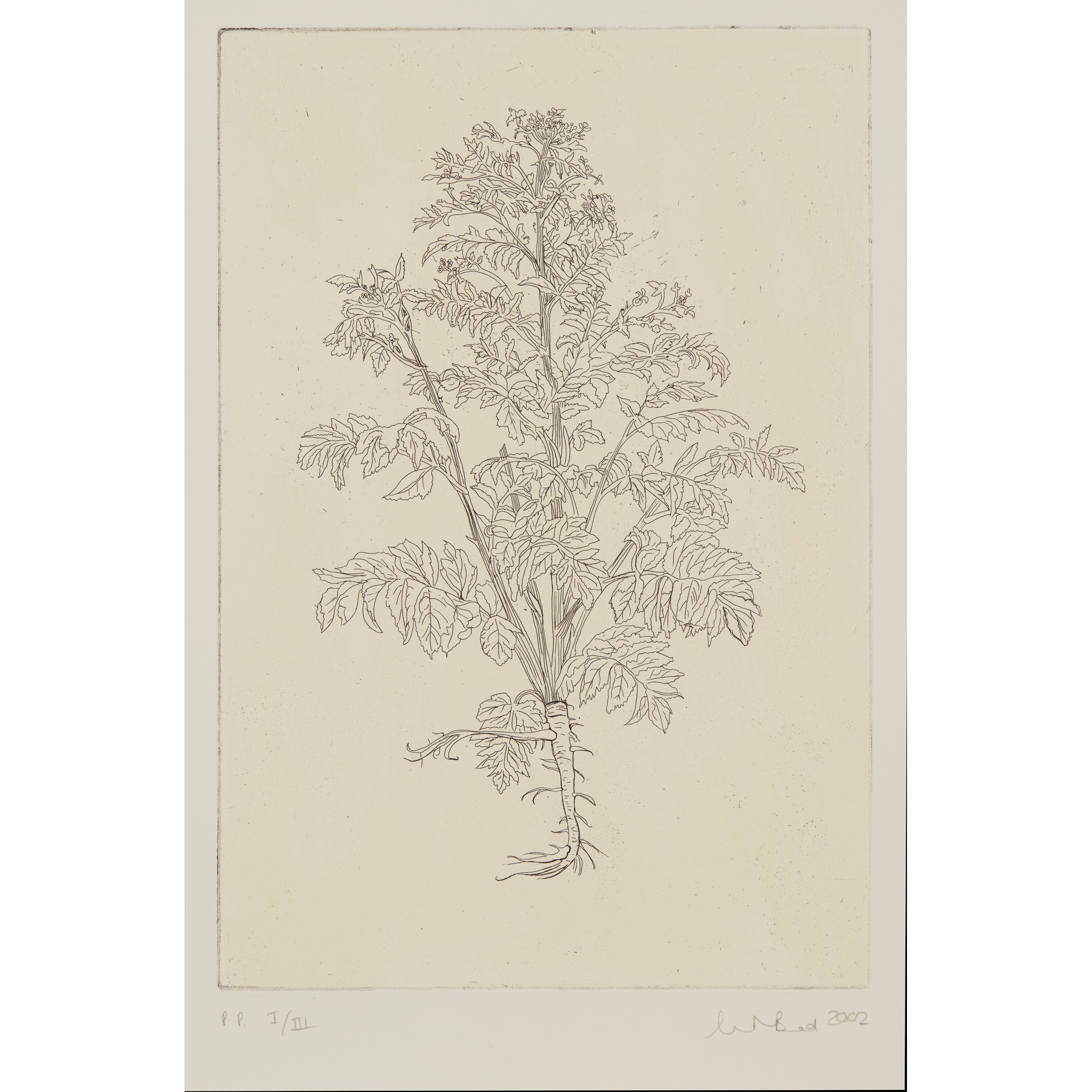CHRISTINE BORLAND (SCOTTISH B.1965) §
THE HISTORY OF PLANTS ACCORDING TO WOMEN, CHILDREN AND STUDENTS
£3,500
Auction: 16 April 2020 at 12:00 BST
Description
Set of 10 etchings, 2002, each signed, dated and numbered in pencil to margin, unframed
Dimensions
61cm x 47cm (24in x 18.5in), full sheet
Footnote
Note:
‘The History of Plants According to Women, Children and Students’ sequence of etchings comes from a series of hand-coloured woodcuts from the sixteenth century illustrated herbal Significant Notes of The History of Plants, written by Leonard Fuchs. This book is the earliest work on plants which can properly be called scientific and it strongly influenced the course of both medicine and botany.
During research at the Glasgow University Library, Christine Borland came across a copy of the work that had been annotated by the Scottish vicar Mark Jameson, the Rector's Deputy at the university in the 1550’s. Jameson had a special interest in medicinal herbs, and it seems that he planned to establish a Physic Garden near the university. His planting list included those known to affect the female reproductive system, and his notes mark out plants thought at the time to be ‘ecbolic’, meaning they stimulate uterine contractions. The ten plants depicted in these etchings were therefore believed at the time to be dangerous- or useful- with the potential to induce miscarriage.
Biography:
Christine Borland was born in 1965 in Darvel, Ayrshire, Scotland. She studied Environmental Art at the Glasgow School of Art and later received an MA University of Ulster, Belfast.
Borland is one of the Young British Artists and was nominated for the Turner Prize in 1997 for her work From Life at Tramway, Glasgow.
She was also very involved in the transformation of Glasgow in 1990s into an internationally recognised hub of contemporary arts. In 2004, she became one of five artists awarded the prestigious Glenfiddich Artist in Residence programme.
Spanning an international career of 25 years, Borland is recognised for her cross-disciplinary projects, which have included working with specialists in medical science and forensics, and exploring areas such as the history of medicine, human genetics, and medical ethics.
Borland works and lives in Kilcreggan, Argyll as a BALTIC Professor at the BxNU Institute of Contemporary Art, which is a collaborative venture between Northumbria University and the BALTIC Centre for Contemporary Art.

